On March 20, the College of Information Science and Technology held the "Fifth Digital and Intelligent Summit of Beijing University of Chemical Technology" in the lecture hall on the second floor of the Conference Center on the East Campus. School of Information Science and Technology President Wang Youqing, vice president Zhang Fan presided over. Young teachers from the School of Information Technology and some graduate students attended the meeting. The conference invited Professor Yin Xucheng, Dean of the School of Computer and Communication Engineering, University of Science and Technology Beijing, Professor Li Jianxin, Party secretary of the School of Computer, Beijing University of Aeronautics and Astronautics, and Professor Liu Chi, deputy dean of the School of Computer, Beijing Institute of Technology, three keynote speakers.
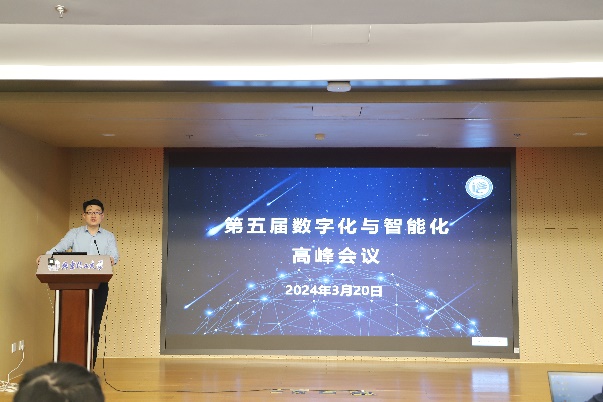
President Wang Youqing delivered a welcoming speech for the summit. He extended a warm welcome and heartfelt thanks to the three guest speakers. He said: The Digitalization and Intelligence Summit is a series of activities held by the college to promote teachers and students to understand the latest cutting-edge technology, and strengthen the academic exchange and interaction between the college teachers, especially young teachers, and outstanding experts and scholars. It has been held for four sessions; The fifth conference is honored to invite outstanding experts and scholars in the field of computer science. I hope the teachers and students present here will seize the opportunity to fully exchange and learn from the experts. Thank you for taking time out of your busy schedule to attend this event.
The four experts and professors respectively brought high-level academic lectures to the teachers and students present, and the teachers and students present interacted warmly and benefited a lot. As an important part of the summit, the meeting also arranged a special activity of face-to-face discussion between three experts and professors from brother colleges and young teachers. The experts and professors have made useful guidance and valuable suggestions in the aspects of discipline construction, the improvement of scientific research and academic level, and the personal career development of young teachers.
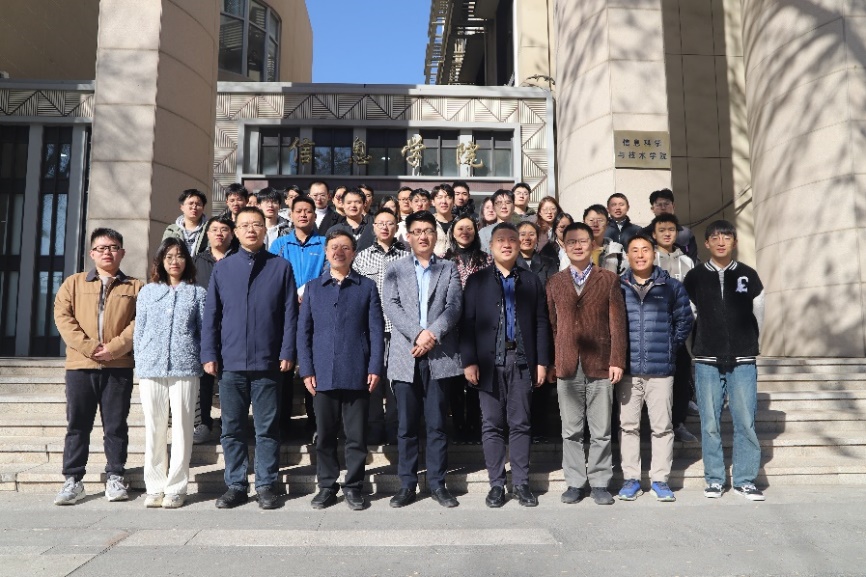
In the first lecture, Professor Yin Xucheng shared an academic report entitled "Pattern Recognition Technology in an open Environment". At present, in the open environment such as intelligent driving and network content security, new data, new patterns and new categories continue to emerge, and new challenges appear in pattern recognition technology and application. The report first briefly reviews the basic concepts of pattern recognition in the open environment, and focuses on the main technologies of open set pattern recognition. Taking open set character recognition as an example, this paper expounds the basic framework and algorithm of open set pattern recognition. Finally, the application of pattern recognition technology in open environment is prospected.
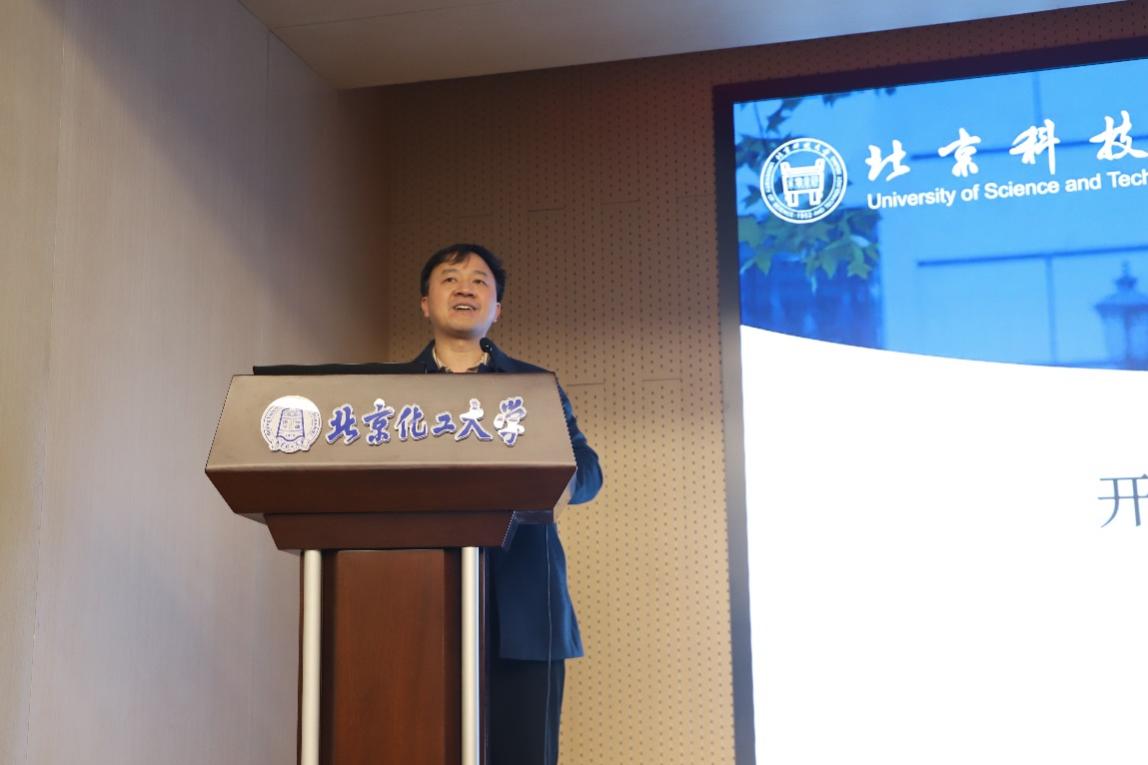
In the second lecture, Professor Li Jianxin gave an academic sharing on the theme of "Intelligent computing of serial big Data". A large amount of sequence data is generated in industrial, medical and social fields, which has problems such as large data scale, difficult anomaly recognition and complex scene tasks. The core of intelligent computing of sequence big data is sequence representation and long-term rule mining, multi-sequence association and anomaly recognition, intelligent decision-making collaboration in multi-task scenarios, high-performance computing of large-scale sequences, and supporting scientific decision-making based on sequence data. Professor Li's team is committed to research in this direction, and its related achievements have been applied to the fields of predictive maintenance of industrial equipment, and it has jointly built an open source system and community of sequence data with Huawei MindSpore.
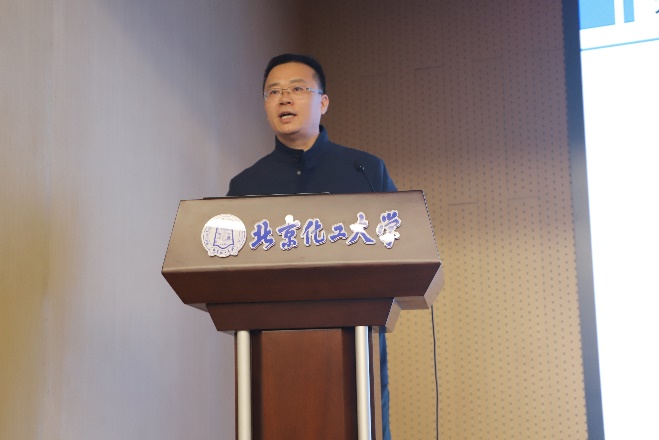
In the third lecture, the academic sharing theme brought by Professor Liu Chi is "open space collaborative edge group intelligence". Air-ground collaborative edge group intelligence technology uses a variety of unmanned mobile platforms or a rich variety of sensors to collect long-term, high-quality, and wide coverage of iot big data, which can play an important role in smart cities, emergency response, future national defense and many other aspects. The report explores how to propose a series of multi-agent deep reinforcement learning methods to support mobile group deployment, perception, and computing, as well as federated learning-based edge intelligence technologies for big data machine learning.
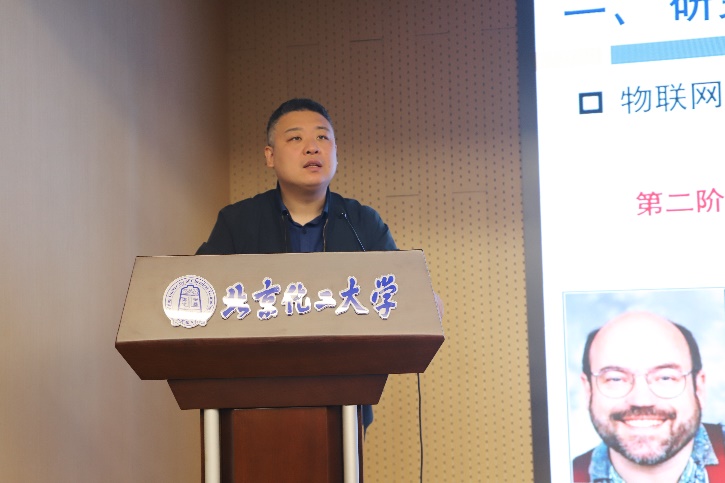
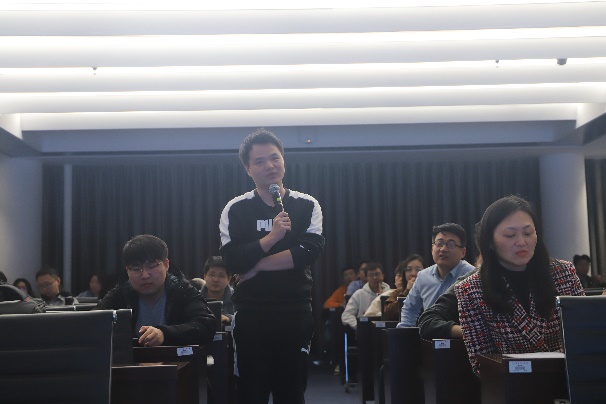
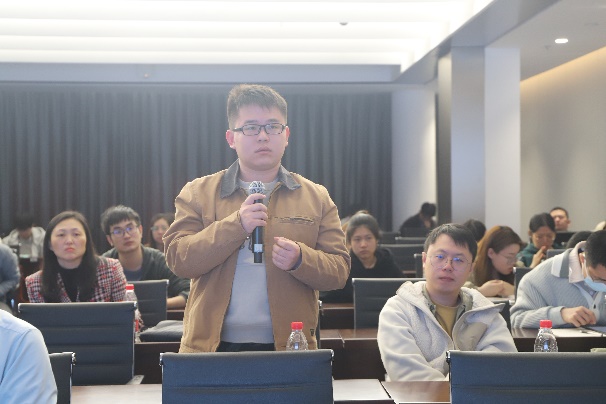
The summit aims to create a high-level academic exchange platform and promote the in-depth and multi-dimensional cooperation between our university and well-known universities. To provide opportunities for teachers and students, especially young teachers, to learn and exchange with top experts and scholars from first-class universities and research institutes. The successful holding of the conference has created a good academic atmosphere for the School of Information Science and Technology, and played an important role in promoting the cultivation of high-level innovative talents and the improvement of the level of scientific research.
